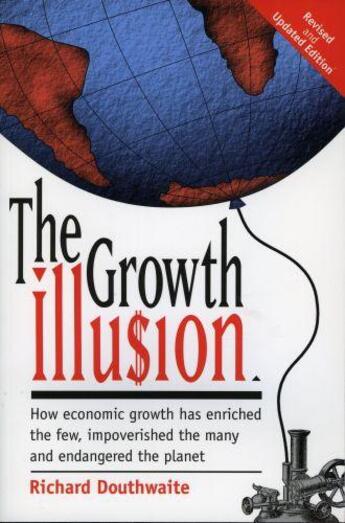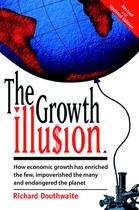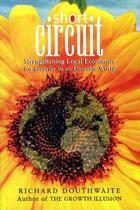-
Nombre de pages : (-)
-
Collection :
(-)
-
Genre :
(-)
-
Thème :
Non attribué
-
Prix littéraire(s) :
(-)
Résumé:
Short-listed for 1992 GPA Award. Is economic growth improving our lives? In 1992, when the first edition of The Growth Illusion appeared, most people had little doubt that the answer was 'Yes'. Today, however, the climate of opinion has changed and there is widespread acceptance that, while... Voir plus
Short-listed for 1992 GPA Award. Is economic growth improving our lives? In 1992, when the first edition of The Growth Illusion appeared, most people had little doubt that the answer was 'Yes'. Today, however, the climate of opinion has changed and there is widespread acceptance that, while growth might be necessary to generate jobs, the development path we are following isn't making life better for ourselves or our children.This new, revised edition of The Growth Illusion explains what has gone wrong. Douthwaite argues that since the 1950s, governments around the world have made economic growth their primary focus in the belief that by baking the biggest national cake, they are creating the resources needed to fulfill their political goals. Recent research in the USA, Britain, Germany and Australia shows that this 'growth first, goals later' strategy isn't working and that in the past fifteen years the growth process has actually destroyed more resources than it has created on a sustainable basis. As these economies run backwards, their citizens become worse off. So why is growth still paramount? Like an aircraft maintaining a minimum airspeed to stay aloft, so an economy must maintain a minimum growth rate if it is not to plunge into a deep depression. If demand fails to increase in any year, less investment will be made the following year, people will be thrown out of work and the economy will begin to unwind. The Growth Illusion explores this trap and many other topics along the way, asking fundamental questions about economics and the society in which we live. In this revised and reworked edition, case studies and statistics have been brought up to date and amplified by new research. Douthwaite identifies recent changes in public attitudes to growth as the beginnings of an intellectual revolution as far-reaching in its consequences for human survival as those initiated by Copernicus or Darwin in their re-assessment of man's place in creation. 'Growth has pushed the economic system beyond safe environmental limits,' he writes. 'The present revolution involves our acceptance that Earth is finite and the laws of nature apply to us.' Press comments about The Growth Illusion: 'Truly a book for our times: a fierce and unrelenting critique of the failures of laissez-faire capitalism ... I commend The Growth Illusion to all.'- The Sunday Tribune - 'Here's an economist who can entertain, blowing the whistle on consumer idiocies ... After reading Douthwaite's vivid and convincing case studies it becomes impossible to hear a politician promising 'recovery' ... without feeling mingled pity and contempt' - The Independent on Sunday -"The Growth Illusion is simply indispensable for those who wish to empower themselves by getting a grip on an alternative model to the prevailing economics of misery. What is particularly impressive is the quality of the scholarship... The publication of this book is a very significant act in democratizing economics.' - Michael D. Higgins, Hot Press 'Douthwaite is no head-banger...The Growth Illusion is a big rich book with an old-fashioned resonance: economics as morality - it does something to hasten the day when capitalism is no longer left as the only game in town.' -The Irish Times 'A terrific book, splendidly written and meticulously researched. I have no hesitation in calling Richard Douthwaite one of the best environmental journalists in the world.' - James Downey, The Universe
Donner votre avis
















